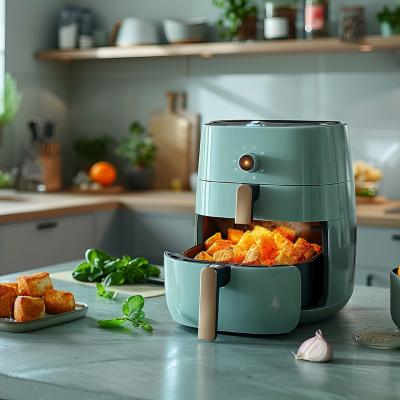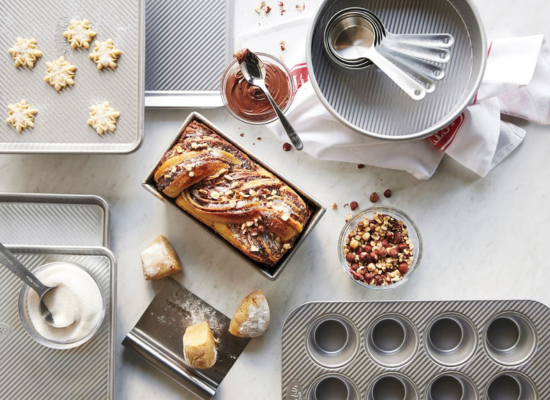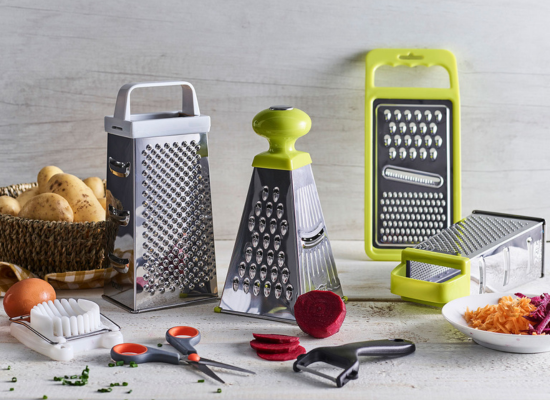
Yes, you can fry in ceramic pans. However, because ceramic is a non-stick surface, you’ll need to use less oil than you would with a metal pan. And be careful not to overload the pan, or the food will stick.
How To Fry In A Ceramic Pan?
If you’re new to cooking with ceramic pans, here’s a quick guide on how to fry in them:
Step 1: Preheat The Pan
Like all cooking vessels, ceramic pans need to be preheated before you start cooking in them. This will help ensure that your food doesn’t stick and that it cooks evenly.
Preheat the pan over medium heat for about two minutes before adding oil.
Step 2: Add Oil To The Pan
Once the pan is preheated, it’s time to add oil. Pour in enough oil to coat the bottom of the pan, and then use a paper towel or brush to spread it around.
You don’t need to use as much oil as you would with a metal pan – ceramic is non-stick, so a little goes a long way.
Step 3: Add Food To The Pan
Once the oil is heated, it’s time to add your food. Be careful not to overcrowd the pan – this will make the food stick and cook unevenly. If you’re cooking multiple items, cook them in batches.
Step 4: Cook The Food
Once the food is in the pan, it’s time to cook it. Cook over medium heat until it’s browned and crispy. Use a spatula to flip or stir it occasionally, making sure that it doesn’t stick.
Be careful not to let the food burn – if it starts to smoke, turn down the heat. Cook until it’s golden brown and crispy on the outside.
Step 5: Remove The Food From The Pan
Once the food is cooked, remove it from the pan and place it on a plate or paper towel to cool. Allow the pan to cool for a few minutes before adding more oil and cooking the next batch.
LEARN MORE: Can You Bake a Cake in a Glass Pan?
Benefits of Frying With Ceramic Pans
There are several benefits to using ceramic pans for frying foods:
Even Heat Distribution
Ceramic pans distribute heat evenly, which means that your food will cook more evenly than it would in a metal pan.
This is especially important when frying foods, as you want them to cook evenly without burning on the outside or staying raw on the inside.
Non-stick Surface
Ceramic is a non-stick surface, which means that you won’t need to use as much oil as you would with a metal pan. This is healthier for you and it also helps keep your pans clean.
Easy to Clean
Ceramic pans are easy to clean – all you need is warm water and soap. You don’t have to worry about scrubbing or scraping off burnt-on food as you do with some metal pans.
You can also put them in the dishwasher, but I recommend hand-washing them to preserve the non-stick surface.
Oven-safe
Ceramic pans are oven-safe, which means that you can start cooking on the stove and finish in the oven. This is great for foods that need to be cooked at a high temperature, like steak or chicken.
LEARN MORE: Copper Chef Pans: Can They Go in the Oven?
Ceramic Cookware Is Safe for Health
The majority of ceramic cookware is coated with “Sol-gel” coatings, which are made up of silica (sand) and other inorganic compounds.
This is the preferred method for coating cookware with ceramic coatings to make it less or non-stick.
The manufacture of ceramic coatings for cookware is tightly regulated by the FDA and other health agencies to ensure that there are no harmful chemicals or toxins released into food.
In fact, most Sol-gel coatings are considered “green” because they’re non-toxic and environmentally friendly.
LEARN MORE: Can Calphalon Pans Go in the Oven?
Disadvantages of Frying With Ceramic Pans
Though ceramic pans are the best for frying foods, they have a few disadvantages too, such as:
Less Durable
The most prevalent issue about ceramic cookware is the lack of durability. After a while, the pan or pot becomes sticky for nearly any cuisine.
You also can’t use oil as you would with stainless steel. Once the surface is gone, you’re obliged to buy a new pan.
Cannot Use High-heat Setting
Another downside of ceramic cookware is that you can’t use the high-heat setting as you could with stainless steel.
The reason for this is that when using a ceramic pan on a stovetop, there’s always the potential to break or crack the cookware because of the sudden change in temperature.
Need to Handwash
Some ceramic sets advertise that they may be washed in the dishwasher. However, in most cases, these pieces must be washed by hand.
It’s the most effective technique to ensure that each thing lasts as long as possible.
LEARN MORE: Why Do Ceramic Pans Lose Their Nonstick?
Best Ceramic Pans for Frying Foods
Now that you know all about ceramic pans, let’s take a look at some of the best options on the market:

The GreenPan Lima 12″ Ceramic Non-Stick Frypan: This is one of the best options on the market.
It’s made with Thermolon Minerals, which is a non-toxic and environmentally friendly coating.
This pan is also metal utensil safe and can be used on all cooktops, including induction.

Blue Diamond Ceramic Cookware 12″ Frying Pan Skillet: If you’re looking for a durable ceramic pan then this is a great option.
It’s made with a diamond-infused coating that’s five times harder than steel and has superior heat conductivity.
This pan is also PFAS and PFOA free which makes it suitable for frying any kind of food.

ZWILLING Spirit Ceramic Non-Stick Fry Pan: This is a great option for those who want a high-quality pan.
This pan is made with durable three-layer construction and a PFOA-free and PFOS-free ceramic non-stick coating.
It can also be used in the oven up to 500 degrees Fahrenheit and on any stovetop, including induction.
Conclusion
Though ceramic pans have a few disadvantages, they’re still the best option for frying foods. They’re healthier for you and easy to clean – plus, they can be used in the oven.
So, if you’re looking for a new pan to fry your food in, consider a ceramic one.



